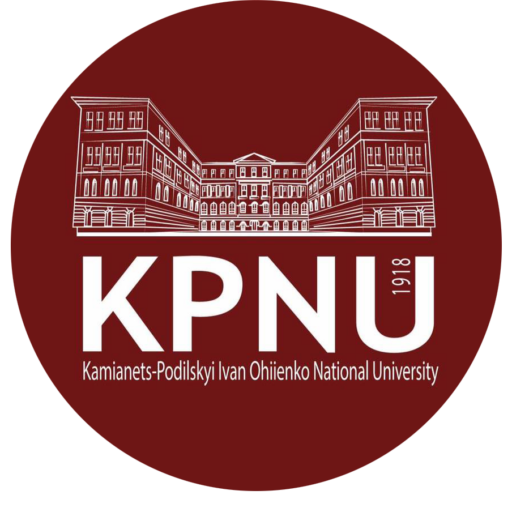Vadim Zelenskiy
Kamyanets-Podilsky Ivan Ohiienko National University
Scientific Supervisor: M.V. Matkovska, Senior Lecturer
THE CONCEPTUAL PURPOSE OF THE WORD “FREEDOM”
BASED ON THE BIDEN’S SPEECH
The complicated relationship between politics and language has long been a source of contention and contention. Politicians recognise the importance of language in the success of their speeches and carefully select their words. On February 21, 2023, US President Joseph Robinette Biden delivered the Warsaw Speech, one of his most important political speeches, in which he warned Russia against attacking a NATO member state and threatened a decisive military response.
Our aim is to examine Biden’s use of the word “FREEDOM” in the context of the current political situation and his use of language in the context of the current political situation within the framework of linguistic action theory.
| The speech [3] | Translation |
| “A choice between chaos and stability. Between building and destroying. Between hope and fear. Between democracy that lifts up the human spirit and the brutal hand of the dictator who crushes it. Between nothing less than limitation and possibilities, the kind of possibilities that come when people who live not in captivity but in FREEDOM. FREEDOM.
FREEDOM. There is no sweeter word than freedom. There is no nobler goal than FREEDOM. There is no higher aspiration than FREEDOM. Americans know that, and you know it. And all that we do now must be done so our children and grandchildren will know it as well. FREEDOM. The enemy of the tyrant and the hope of the brave and the truth of the ages. FREEDOM. Stand with us. We will stand with you. Let us move forward with faith and conviction and with an abiding commitment to be allies not of darkness, but of light. Not of oppression, but of liberation. Not of captivity, but, yes, of FREEDOM. May God bless you all. May God protect our troops. And may God bless the heroes of Ukraine and all those who defend FREEDOM around the world”. |
«Ми повинні вибирати між хаосом і стабільністю. Між будівництвом і руйнуванням. Між світом надії і світом страху. Між демократією, яка підносить людський дух, і жорстокими руками диктаторів, які його розчавлюють. Між обмеженнями і можливостями, можливості, які з’являються, коли люди живуть у ВОЛІ, а не в рабстві. ВОЛЯ.
ВОЛЯ. Немає кращого слова, ніж воля. ВОЛЯ – найвища мета. Немає цілі вище ВОЛІ. Американці це знають, і ви теж. І все, що ми зараз робимо, треба робити, щоб про це знали наші діти та онуки. ВОЛЯ. Ворог тиранів, надія хоробрих і вічна правда. ВОЛЯ. Приєднуйтесь до нашої справи. Ми вас підтримаємо Дійте з вірою та переконанням, з непохитною рішучістю бути союзником Світла, а не Темряви. ВОЛЯ, а не гноблення. Не в неволі, а на ВОЛІ. Нехай Бог продовжує вас усіх благословляти. Хай Бог береже нашу армію. І хай Бог благословить героїв України та всіх, хто боронить ВОЛЮ в усьому світі». |
In the human mind, the word is always associated with a plethora of associations, with the linguistic picture of the world, and thus comprehension of each linguistic unit is to establish a connection with the lexical system as a whole. Biden used the word “FREEDOM” several times in his speech.
What exactly does FREEDOM entail? The FREEDOM is a key philosophical category that has sparked much philosophical debate. A substantial amount of philosophical work has been completed. Many people are interested in the philosophy of human FREEDOM, e.g. A. Schopenhauer, А. Camus, V.B. Galli, I. Kant, Montesquieu, F. Nietzsche, A. Lincoln, W. Sartre, Hegel, J. V.B. Galli defines freedom as a “essentially contested concept,” that is, a concept that inherently leads to disagreements [4]. To the greater extent, the concept of FREEDOM corresponds to all of these characteristics. So, it would be naive to try to settle the debate over what “really” FREEDOM exists in.
There are no irrefutable arguments in the debate over FREEDOM and its various variants that would dispel all doubts. In his work “On the Spirit of Laws,” Montesquieu [1] begins his discussion of FREEDOM with the statement that no other word has as many different meanings as the word “FREEDOM”. In a similar vein, Abraham Lincoln stated about liberty and slavery in his 1864 speech [4].
As a result, there is a connection between the teachings of both scholars on the concept of freedom. Biden defines “There is no nobler goal than FREEDOM. There is no higher aspiration than FREEDOM” as a person’s ability to act in accordance with his own desires and abilities, which is what his “FREEDOM” consists of, whereas Kant defines autonomy as free actions based on reason and universal moral principles. Taking into account the realities of the world’s events, Biden’s political career coincides with an escalation of social contradictions. Whatever the fate of the people or the country, whether happy or unfavourable to him, I still managed to “catch” the freedom-loving president, who managed to preserve in purity the treasure that the ancestors valued most – FREEDOM.
REFERENCES
- Baron de La Brède et de Montesquieu: The Spirit of the Laws. Cambridge : Cambridge University Press, 2005. 154 p.
- Lincoln, A. Address at Sanitary Fair, The American Presidency Project. 1999. Retrieved from https://www.presidency.ucsb.edu/documents/address-sanitary-fair-baltimore-lecture-liberty.
- Remarks by President Biden Ahead of the One-Year Anniversary of Russia’s Brutal and Unprovoked Invasion of Ukraine. Retrieved from https://www.whitehouse.gov/briefing room/speechesremarks/2023/02/21/.
- Gallie, B. Essentially Contested Concepts. Proceedings of the Aristotelian Society. London : Oxford University Press, 1956. 167 p.
